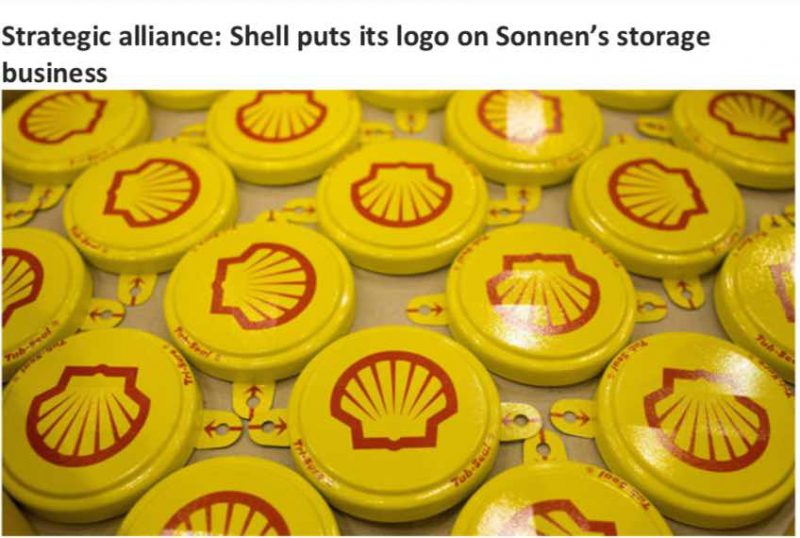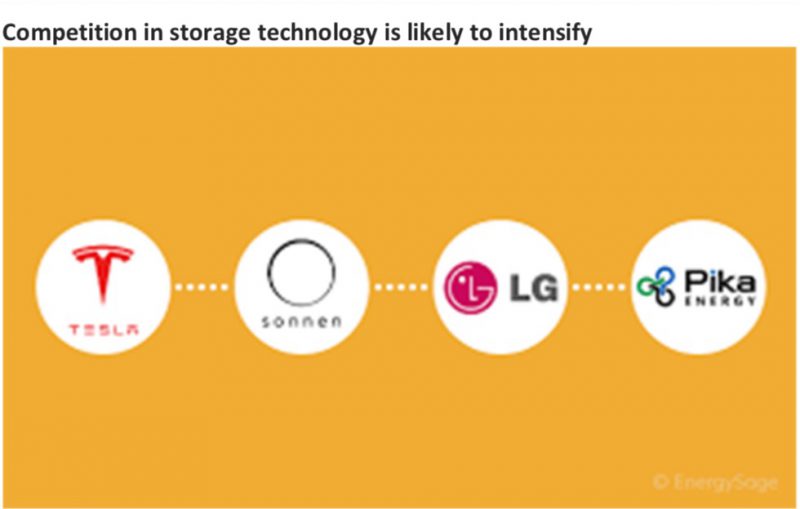There is a cliché in business that if you cannot beat the enemy, you might as well join them.
Oil majors appear to be waking up to the new reality that the future of road transport is pivoting to electric – some would say hydrogen.
And they realise that if they sit still, not only will demand for gasoline and diesel dwindle but their extensive network of petrol stations will end up as stranded assets as more electric cars are likely to want to charge up rather than fill up.
Not surprisingly, they have been snapping up promising start-ups in electric vehicle (EV) charging, electric storage and battery business as fast as they can identify them.
For them, the investments required to acquire promising companies are small change, rounding errors compared to massive investments in upstream exploration and development.
The most active oil major in this space has been Shell, which recently divulged a coherent strategy to shift to electric (article on page 5).
Recently, it has made several strategically important acquisitions including Sonnen, a German battery company, and last year’s takeover of UK power supplier First Utility, which has given it direct access to retail electricity consumers in the US for the first time.
It also bought New Motion, one of Europe’s largest electric vehicle charging enterprises.
The decision to snap Sonnen is noteworthy, suggesting that Shell has concluded not only that Sonnen was doing interesting things on its own, but it could offer a strategic beachhead in the energy storage business to compete with the likes of Tesla and LG Chem.
With its acquisition Shell now has an opportunity to play in distributed energy storage, suitable for homes and small businesses, as well as utility scale storage and get into the lucrative electric vehicle (EV) charging business, where the company has recently made a number of other acquisitions including in fast-charging start-up Greenlots.
It is entirely consistent with its vision to become a global electricity company over time.
Oil companies are closely watching what others are saying and doing.
Diversifying away from oil andinternal combustion engines (ICEs) makes perfect sense if Shell is reading BP’s latest annual energy outlook (preceding article), which acknowledges that renewables will become the dominant forms of energy supply within 10 years.

BP says renewables will account for 30% of global power by 2030 while predicting the rapid demise of coal and declines in both gas and nuclear.
Shell’s diversification strategy is being implemented through Shell’s New Energies Division, which is focused on electricity – rather than liquid fuels – to power future fleets of cars and light duty vehicles.
(Listen to our podcast interview with Brian Davis, the head of Shell’s new energy solutions business here).
This, you might say, is oceans apart from what the rest of Shell’s organization does.
Explaining its latest acquisition, Mark Gainsborough, the executive vice president of New Energies said, “Sonnen is one of the global leaders in smart, distributed energy storage systems and has a track record of customer-focused innovation.
Full ownership of Sonnen will allow us to offer more choice to customers seeking reliable, affordable and cleaner energy.”
Welcoming Shell’s acquisition and its deep pocket, Christoph Ostermann, the CEO and co-founder of Sonnen, said Shell was the “perfect partner” to support growth in a rapidly expanding market.
“With this investment we’re excited to help more households to become energy independent and benefit from new opportunities in the energy market. Shell will help drive the growth of Sonnen to a new level and help speed up the transformation of the energy system.”
In a later statement, Sonnen announced that it was planning to scale up rapidly in new markets, expecting to scale up production 5 to 10 fold in the next 24 months.
Clearly, Sonnen will no longer have to worry about where its next round of investments will come from.
Shortly after, Shell acquired energy technology company LimeJump, a digital energy platform which uses its portfolio of batteries to provide demand-response services using cloud-based software – according to a press release.
LimeJump said that it will continue to focus on its “three main objectives: paving the way to a more sustainable energy future; maximizing revenue streams for all decentralized asset owners; and utilizing data science and technology to enhance the interplay between renewable supply, demand flexibility and energy storage.”
Shell has said it wants to double its investments in low-carbon energy technologies to $4 billion/yr – small change for Shell but a huge fortune if you are a struggling Silicon Valley start-up.
Shell, of course, is not the only oil major getting into battery storage, EVs and EV charging business. France’s Total, for example, already owns a majority share in SunPower, while acquiring Safe for $1.2 billion.
In the meantime, BP acquired EV charging company Chargemaster and StoreDot.

In the meantime, front runner Tesla is not sitting idle as virtually every major automaker is coming to compete in the rapidly growing EV business.
In early March Tesla acquired Maxwell Technologies, a pioneer in the design and manufacture of the high-power density ultra-capacitors, for $218 million.
It is a good fit for Tesla, allowing extended range and faster recharging times plus longer life for the batteries.
Maxwell claims that its patented dry cell electrodes can boost the energy density of current Teslas anywhere from 40 to 140% while extending their range from the current 220 miles to around 375.
That’s not all. Maxwell says its dry cell technology can lead to 10-20% cost reduction while doubling battery life.
Fast forward 10 years and you are likely to see the auto industry totally transformed to making EVs – that is widely acknowledged – and an oil industry moving to serve the electricity charging needs of millions of new EVs.
Don’t be surprised if big oil gets into electricity distribution or renewable generation – as Totaland Shell already have.
Big oil is gradually turning into big electric.
Fereidoon Sioshansi is president of Menlo Energy Economics, a consultancy based in San Francisco, CA and editor/publisher of EEnergy Informer, a monthly newsletter with international circulation. He can be reached at [email protected]

